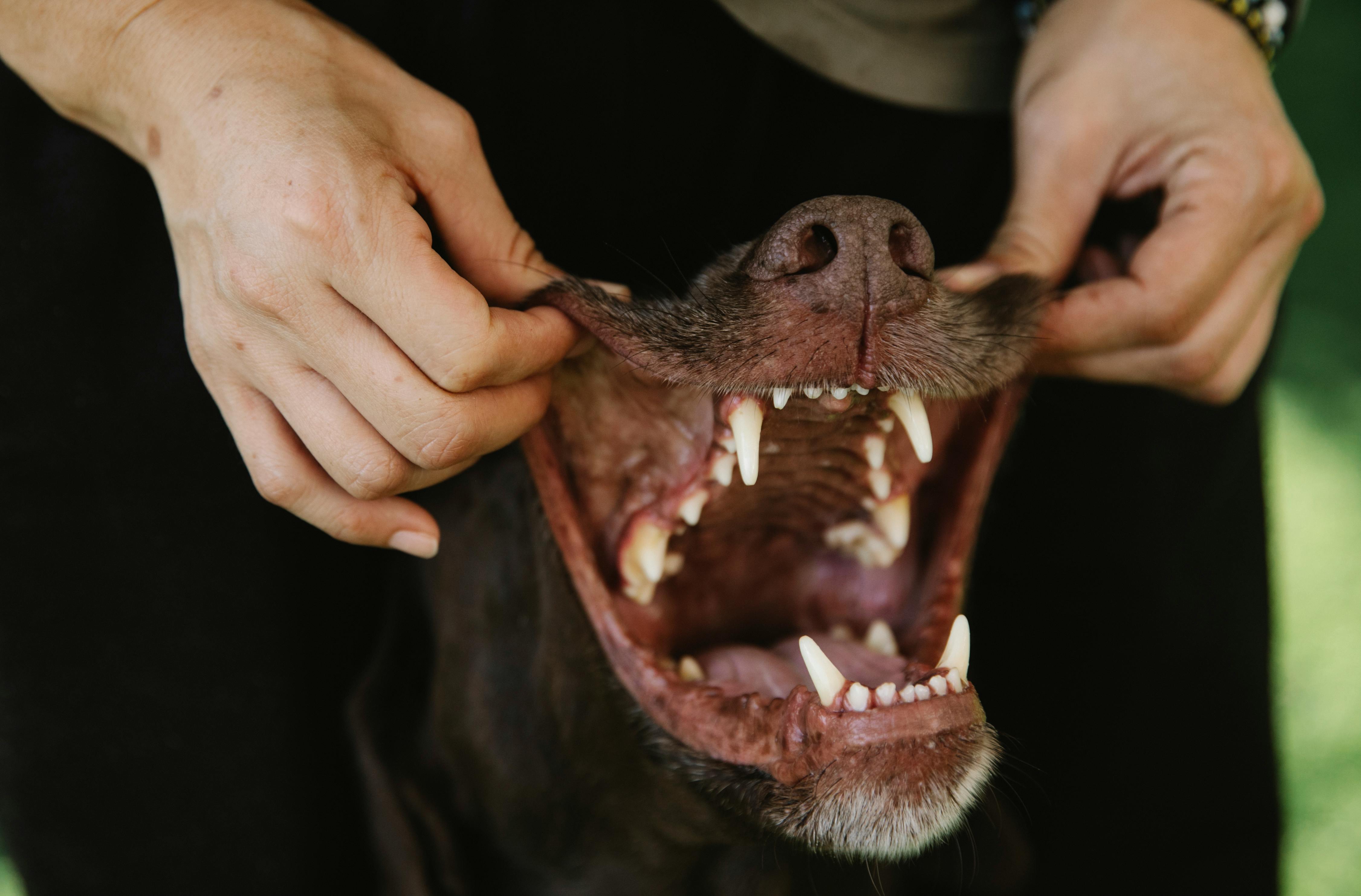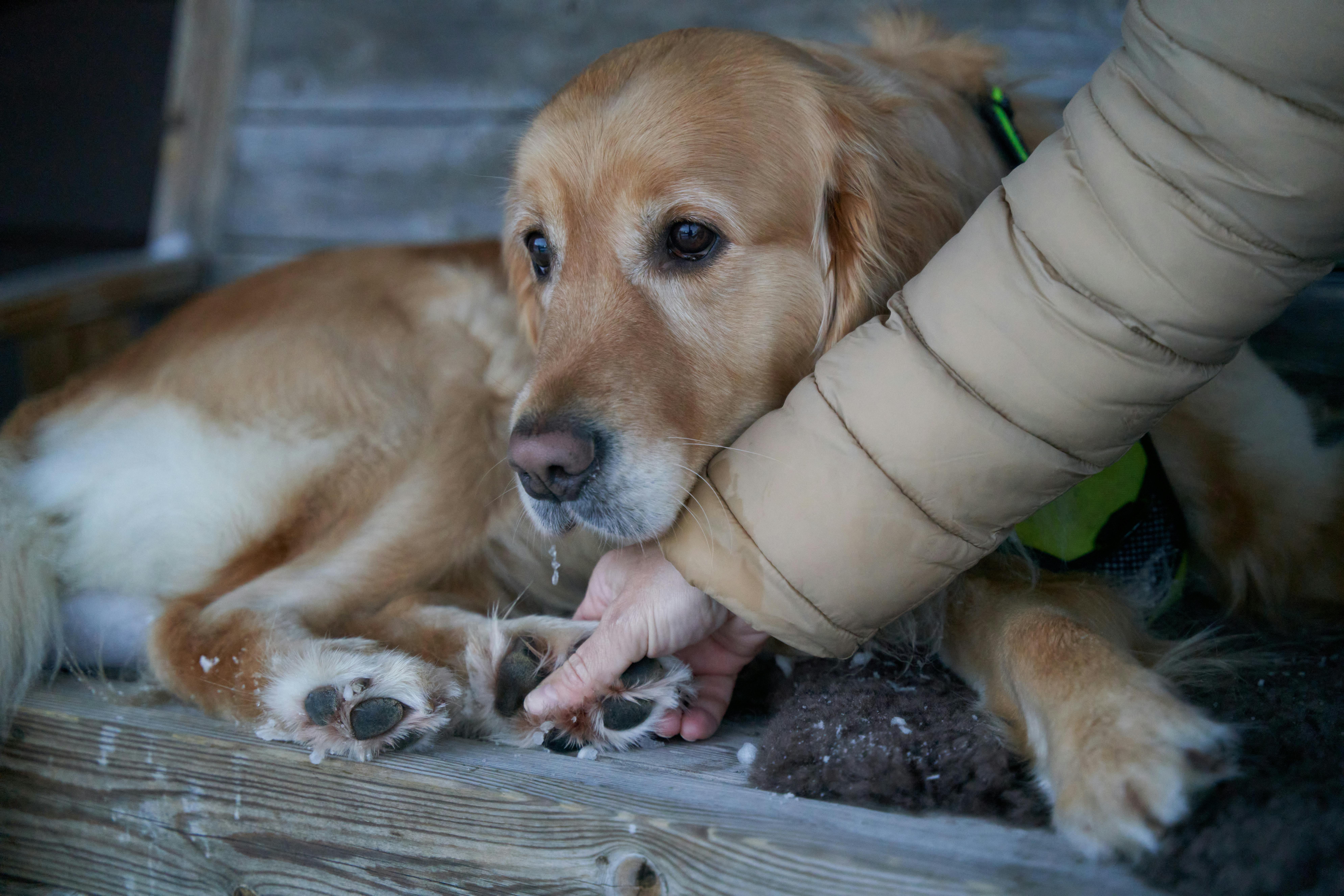Signs Your Dog May Have Dental Problems: What to Look For
18th Dec 2024
Your dog’s teeth do so much more than chew, functioning as essential tools for playing, exploring, and showing affection. But what happens when dental problems get in the way? Neglecting oral health can lead to serious issues that affect your dog’s overall happiness and wellbeing.
Let’s explore the telltale signs of bad teeth in dogs, what might be causing them, and how you can help your furry friend maintain a healthy, happy smile.

Common Signs of Bad Teeth in Dogs
Our furry pals can’t tell us when something’s wrong, but their behaviour often speaks volumes. Here are some signs of bad teeth in dogs to watch for:
Bad Breath
A little doggy breath is normal, but when persistent, can be unpleasant for everyone involved. It could mean there’s a buildup of bacteria, early stages of gum disease or even an infection lurking in your dog’s mouth.
Struggles During Mealtime
If your dog is dropping food, chewing on one side, or seems hesitant to eat, dental pain might be the culprit. This could point to loose teeth, gum inflammation, or an oral infection.
Bleeding or Inflamed Gums
Healthy gums should be pink and firm. Red, swollen gums or spots of blood on chew toys are early indicators of gum disease that need attention. Left untreated, this can progress to periodontitis, which affects the tissues and bones supporting the teeth.
Discoloured or Loose Teeth
Yellow or brown buildup on teeth can mean plaque and tartar, leading to decay, infections, and bad breath. If their pearly whites are wobbly, it’s a more serious sign of bad teeth in dogs.
Pawing at the Mouth
Constantly pawing or rubbing their face on furniture may mean your dog is trying to relieve discomfort caused by dental issues.

Excessive Drooling
If your pup suddenly starts drooling more than usual, especially if it’s accompanied by a foul smell or blood, it could be linked to infections or other oral problems.
Swelling Around the Mouth or Face
A swollen face or mouth could indicate an infection or abscess, a pocket of infection often resulting from untreated tooth decay or gum disease. This requires immediate veterinary care.
Behavioural Changes
Is your typically playful pup acting grumpy or withdrawn? Dental pain can affect their mood and energy levels.
Chew Toy Clues
If you notice bloodstains on your dog’s chew toys or bedding, it’s worth investigating their oral health further.
Odd Noises While Eating
Clicking or grinding sounds while chewing may point to fractured teeth or jaw misalignment caused by dental problems.
What Causes Dental Problems in Dogs?
Understanding what might be behind your dog’s dental troubles is key to preventing them in the future. Here are some of the usual suspects:
1. Gum Disease: Plaque and tartar buildup can cause gum irritation, leading to bacterial infections that damage tissues and even loosen teeth.
3. Plaque and Tartar Buildup: Plaque is a sticky film of bacteria that hardens into tartar if not removed. This can lead to tooth decay, bad breath, and gum inflammation.
3. Broken or Fractured Teeth: Chewing on overly hard items like bones or certain toys can fracture teeth. Opt for safe chew toys to avoid this.
4. Oral Infections: If tooth decay isn’t treated, it can lead to abscesses or infections that cause swelling, pain, and even systemic health issues.
5. Retained Baby Teeth: Some dogs retain their puppy teeth even after their adult teeth grow in, which can lead to overcrowding, misalignment, and tartar buildup.
Keeping Your Furry Friend’s Teeth Healthy
The best way to fight dental problems is through prevention. Here’s how you can help your dog maintain great oral health:
Brush Their Teeth Regularly
A daily brushing routine with a dog toothbrush and specially formulated dog toothpaste is one of the most effective ways to keep plaque and tartar at bay. Starting this habit early can make it easier for you and your pet.
Dental Chews and Toys
Chewing is a natural way for dogs to clean their teeth. Dental chews and toys are a fun and effective way to reduce plaque and tartar buildup. Plus, it provides mental stimulation while satisfying your dog’s natural urge to chew.
Schedule Routine Vet Visits
Annual dental checkups allow your vet to catch potential issues early and provide professional cleanings when needed.
Monitor Their Diet
A balanced diet supports overall health, including oral health. Some foods and treats are specifically designed to reduce tartar buildup.

Keep Your Pup’s Smile Bright & Healthy
Your dog’s dental health directly impacts their happiness and quality of life. By staying vigilant for signs of bad teeth in dogs and maintaining a proactive care routine, you can keep their smile bright and their tail wagging.
Shop for canine toothbrushes and toothpaste at The Animal Pharmacy and make dental care a breeze. Your dog will thank you with every playful grin!

